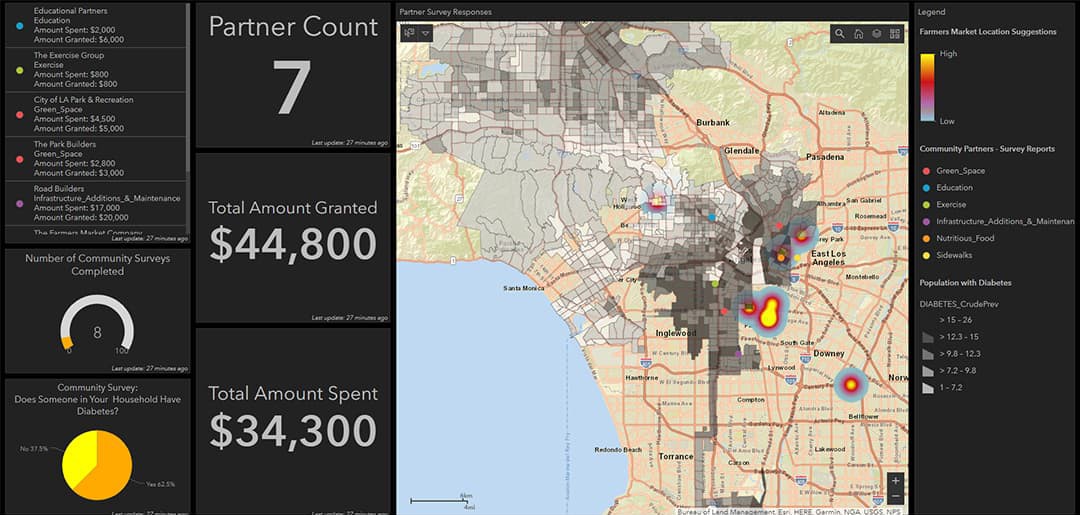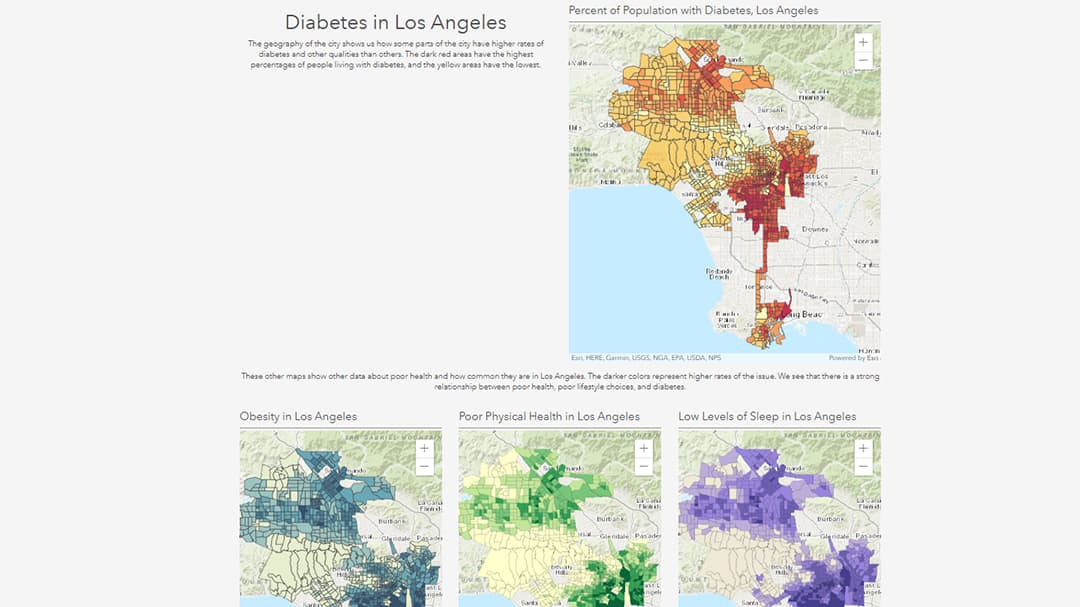Through this effort, it is our belief that the CHNA will come alive, moving from a binder on the shelf to a dynamic, interactive, and strategic tool that contributes to and catalyzes our communities to achieve health for a better world.
Hospitals & Health Systems
Seeing What Others Can't: Improving Community Health and Health Equity
With a rich heritage of identifying and serving community need, Providence St. Joseph Health has been conducting Community Health Needs Assessments (CHNAs) long before they were required by the Affordable Care Act. In partnership with Esri, Providence St. Joseph Health is making the CHNA a core component of organizational strategy, particularly in addressing health equity and improving access to services. Since taking a location-centric approach to its community benefit efforts, Providence St. Joseph Health—a national, Catholic, not-for-profit health system—has gained unparalleled insights that allow it to deliver better service to its patients and communities at large.
Rather than producing static documents every three years, Providence St. Joseph Health wanted to find a more effective way to fulfill the CHNA requirements and make itself a community-based resource. Understanding the needs of each community is a critical step in achieving Providence's vision: "health for a better world." In 2018, Providence began modernizing its CHNA process to ensure inclusive, mixed-methods approaches that promote collaboration throughout the system's 51 hospitals across seven states. These results inform outcomes, resource allocation, and hospital strategy to address prioritized community health needs.
Providence St. Joseph Health has teamed with Esri, the world leader in mapping and spatial analytics, to reimagine the CHNA and overcome the barriers of the past. Together, they’re developing a standardized approach to the CHNA that focuses on people and their environments, how they are related, and what actions will move the needle toward improved health outcomes. The companies' new, digital CHNA will not only provide a greater level of understanding but also serve as an operational tool for prioritizing community-based efforts and resource allocation.
 With ArcGIS, Providence St. Joseph Health is able to efficiently visualize the vast quantities of data being gathered through their engagement with community partners and residents.
With ArcGIS, Providence St. Joseph Health is able to efficiently visualize the vast quantities of data being gathered through their engagement with community partners and residents.
Using Esri's ArcGIS Business Analyst software and data, Providence St. Joseph Health will be able to analyze demographic and location data to create actionable intelligence. This will help ensure that health equity is at the forefront of Providence's efforts and drive community investment strategies from a place-based perspective. The map-based digital CHNA will make vast quantities of data immediately understandable and far more accessible to the public. Implementing ArcGIS Hub, Esri's community engagement software, will enable Providence to turn the CHNA into an interactive resource to foster bidirectional communication and facilitate sharing and collaboration with patients and community members.
This innovative CHNA will enable users to view local issues—such as homelessness, chronic disease, and substance abuse—in a real-time way and easily provide feedback and share this information with others in the community. Furthermore, this will allow Providence to be a leader in implementing place-based approaches to addressing social determinants of health and monitoring their impact with community-level data.
 The digital CHNA, powered by ArcGIS Hub, will enable Providence St. Joseph Health to share valuable information regarding critical issues of the community, including chronic disease such as diabetes.
The digital CHNA, powered by ArcGIS Hub, will enable Providence St. Joseph Health to share valuable information regarding critical issues of the community, including chronic disease such as diabetes.
Another significant benefit for Providence St. Joseph Health is the partnerships it has already begun to form and strengthen. Many of the county organizations Providence partners with through the CHNA process also use ArcGIS. This allows them to cross-pollinate their vital databases and relationships through the common language of geographic information system (GIS) technology.
Dora Barilla, DrPH, is the vice president for community health investment at Providence St. Joseph Health. She notes, "Through this effort, it is our belief that the CHNA will come alive, moving from a binder on the shelf to a dynamic, interactive, and strategic tool that contributes to and catalyzes our communities to achieve health for a better world."